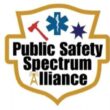APCO: Five NPSPAC licensees complete rebanding
BALTIMORE–Amid considerable frustration regarding the pace of 800 MHz rebanding, a Transition Administrator (TA) official yesterday offered some of the most encouraging news on the project since NPSPAC licensees began negotiating with Sprint Nextel last year.
Of the “almost 900” licensees in Waves 1-3 of Stage 2 in rebanding, 340 have completed a reconfiguration agreement with Sprint Nextel, TA representative Dave Buchanan said during a session focusing on rebanding at the Association of Public-Safety Communications Officials (APCO). Most of the 35 licensees that have completed the physical rebanding process operate in the expansion band, but “five or six” are NPSPAC licensees, he said.
“It’s been said before: [rebanding is not as far along as we’d like, but it’s making steady progress,” Buchanan said.
Previously, TA officials declined to acknowledge that any NPSPAC licensee had completed the reconfiguration process, even though the city of Lakewood, Colo., finished its rebanding work several weeks ago. However, Buchanan noted that the NPSPAC licensees that have finished rebanding typically have systems that are not very complex or large.
“Keep in mind that they’re not giant ones, he said.
One potential snag in the rebanding process that Buchanan cited was the difficulties that rebanding places on the Sprint Nextel network in some geographical areas. In those areas, it is important that several other licensees reband at the same time, so the wireless carrier has enough spectrum available to maintain its iDEN network operations.
“What happens is that Nextel has to shut down in the [Channel] 1-120s so that you public-safety licensees can move down there,” Buchanan said. “At the same time, they can’t start using the old NPSPAC frequencies, so they have a tough balance of trying to keep their network going and freeing up channels [for public safety].”
Recognizing this difficulty, the TA has conducted three regional implementation meetings—in Colorado, Utah and Kansas—where all licensee parties can identify interoperability needs and provide input on the logistics associated with retuning radios.
Because all of these regional implementation meetings were “well received,” the TA will conduct more, averaging about five or six per month until December, Buchanan said. The next set of regional implementation meetings are scheduled to be conducted in metropolitan New York, two in northern California, Nebraska, Illinois and Indiana.













